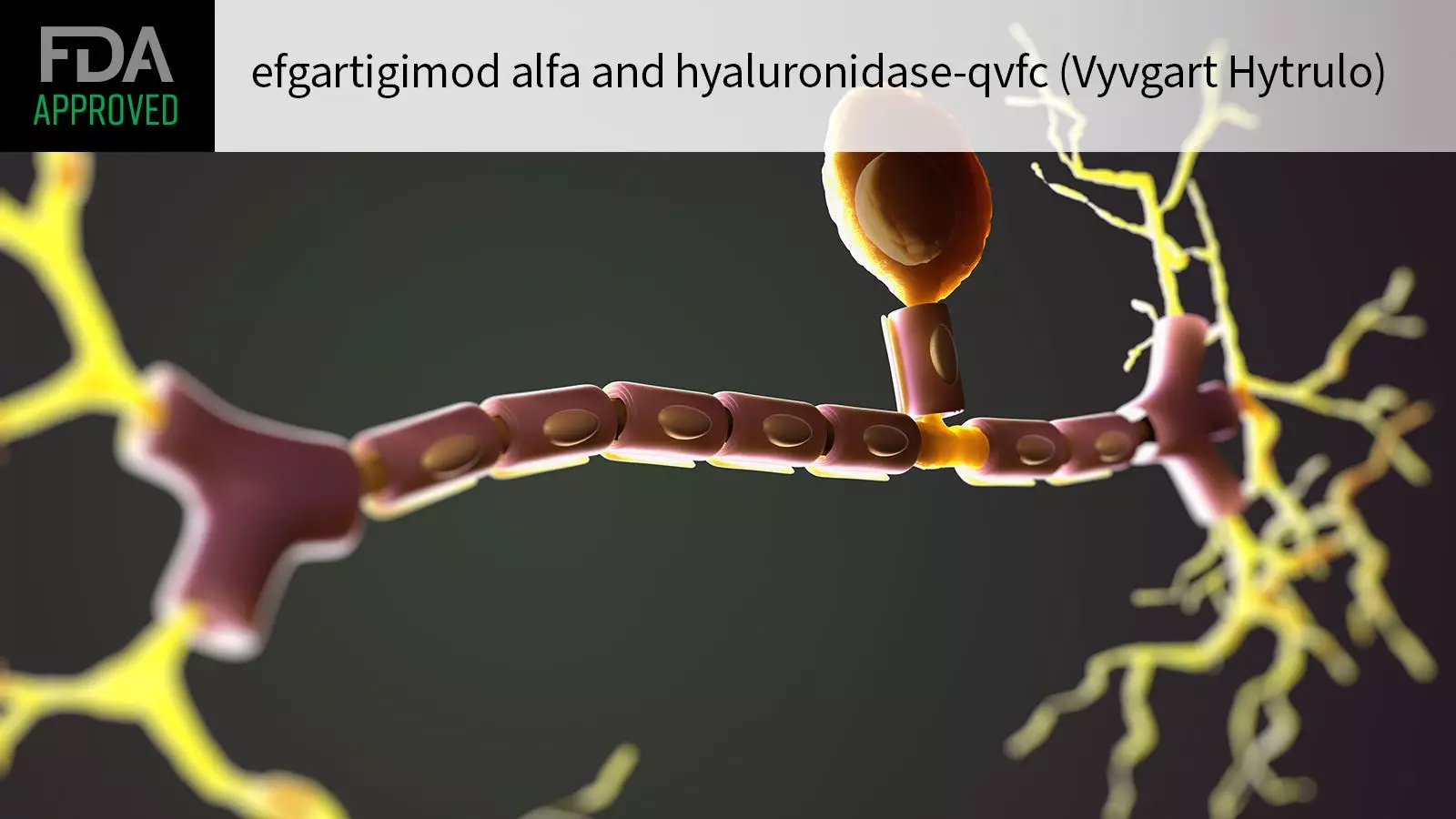The recent announcement by the FDA expanding the indication of efgartigimod alfa and hyaluronidase-qvfc (Vyvgart Hytrulo) to include treatment for adults with chronic inflammatory demyelinating polyneuropathy (CIDP) is a significant milestone in the field of neurology. This decision provides hope to patients suffering from this rare and debilitating immune-mediated neuromuscular disorder by offering a new, safe, and effective treatment option.
Challenges in CIDP Treatment
CIDP patients have historically been limited to treatments involving corticosteroids and plasma-derived therapies, which may be effective but can be challenging for some patients to receive. The approval of the efgartigimod-hyaluronidase combination now gives doctors and patients an alternative treatment that may lessen the burden of therapy while potentially improving outcomes.
The efgartigimod-hyaluronidase combination is a weekly subcutaneous injection that works by targeting the neonatal Fc receptor (FcRn) to decrease the recycling of immunoglobulin G (IgG) and reduce levels of pathogenic IgG autoantibodies that are thought to play a role in CIDP. This mechanism of action represents a novel approach to treating CIDP and highlights the importance of developing targeted therapies for rare diseases.
The approval of this new treatment option offers hope to CIDP patients who may be facing daily concerns and challenges related to their condition. By providing an effective and safe alternative to existing therapies, patients may have the opportunity to manage their disease more effectively and potentially reduce the risk of disease progression.
Clinical Trial Findings
The FDA based its decision on the results of the ADHERE trial, which included 322 CIDP patients. The trial showed that a majority of patients experienced improvements with efgartigimod-hyaluronidase treatment, with a lower risk of relapse compared to placebo. Most treatment-emergent adverse events were mild to moderate, and safety results were consistent with previous studies of efgartigimod.
The approval of the efgartigimod-hyaluronidase combination represents a step forward in the treatment of CIDP and underscores the importance of continued research and innovation in rare disease therapeutics. As ongoing studies assess the long-term safety and efficacy of this treatment, the hope is that CIDP patients will have access to a range of treatment options for individualized care.
The approval of this new treatment option for CIDP patients is a positive development that offers hope to individuals living with this challenging condition. By expanding the range of therapeutic options available, patients may have the opportunity to manage their disease more effectively and improve their quality of life.


Leave a Reply